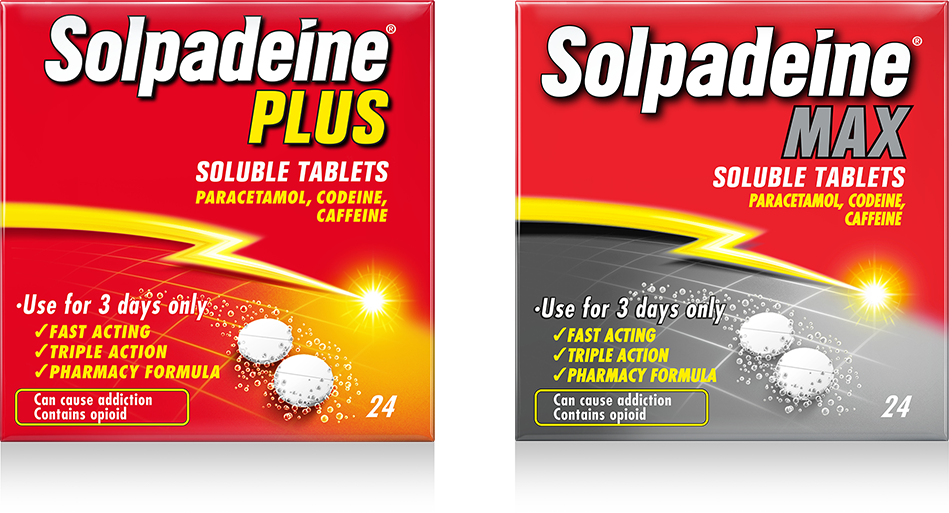Understanding different types of head pain
From a dull ache when we are feeling a bit overtired, to more painful throbbing or stabbing sensations in our skulls and flashing lights before our eyes…
Aug 26 2021 · 3 min read

From keeping hydrated and getting enough sleep, to cutting out alcohol and managing stress, there are lots of ways to head off a headache before it starts.
We all get headaches now and again[i] , ranging in intensity from mildly inconvenient to ragingly unbearable. While simple pain relief products can help with minor symptoms – and you should always see your GP for advice about more serious head pain – there is also plenty you can do to try prevent a headache happening in the first place.
Dehydration, caused by not drinking enough fluids, is a really common cause of headaches , and very simple to rectify. Over the years there’s been a lot of debate about exactly how much water we should drink each day for optimum hydration, with the figure of 2 litres a popularly quoted amount, but actually there’s no officially recommended level. A simple rule of thumb is to be guided by your own thirst and take on enough fluid during the day to keep your urine a pale or clear colour .
Drinking too much alcohol[ii] or coffee can also dehydrate you, as they both have a diuretic effect on the body, causing you to pee more. Consider cutting down on these if you drink a lot of either and are getting dehydration headaches.
Looking at a screen for a long time[ii], or wearing glasses or contact lenses with the wrong prescription, are some of the things that can cause eye strain headaches.
Make an effort to take frequent screen breaks, and set an alarm to remind you if you find it hard to remember. If you already wear glasses or contact lenses don’t ignore the regular reminds from your optician to go for your sight test, and if you don’t already wear glasses but find yourself squinting to see things near or far away, now might be the time to book yourself in for a test.
Sleep and stress have long been recognised as possible triggers in people who experience regular headaches, with research showing having two consecutive days of either high stress or low sleep can be strongly predictive of headache, whereas two days of low stress or adequate sleep can protect them against headache .
However, too much sleep can also cause headaches[ii]. Most of us need around eight hours of good-quality sleep a night, although the amount varies for everyone . If you’re waking up tired then chances are you’re not getting enough sleep, so work out how much sleep you really need and then try to stick to it – no more and no less.
These simple tips are a good way to start if you are having mild headaches and want to try some self-care techniques to see if you can stop them happening in the first place.
If your headaches persist then your pharmacist will be able to advise on products and medicines that can help, including Solpadeine’s range of headache pain relief medications in a variety of formulations.
However, if you are finding that painkillers are not helping – or your headache gets worse, you feel sick, vomit and find light or noise painful – talk to your GP immediately or call 111 for further help and advice.
References:
i. Ahmed F. Headache disorders: differentiating and managing the common subtypes. Br J Pain. 2012;6(3):124-132. doi:10.1177/2049463712459691https://www.ncbi.nlm.nih.gov/pmc/articles/PMC4590146/
ii. NHS Conditions: headaches
https://www.nhs.uk/conditions/headaches/
iii. Dehydration
https://www.nidirect.gov.uk/conditions/dehydration
iv. Eye strain and fatigue – causes and how to prevent it
https://blog.moorfields-private.co.uk/eye-strain-and-fatigue-causes-and-how-to-prevent-it
v. Stress and sleep duration predict headache severity in chronic headache sufferers
https://pubmed.ncbi.nlm.nih.gov/23073072/
vi. NHS: Why lack of sleep is bad for your health
https://www.nhs.uk/live-well/sleep-and-tiredness/why-lack-of-sleep-is-bad-for-your-health/
From a dull ache when we are feeling a bit overtired, to more painful throbbing or stabbing sensations in our skulls and flashing lights before our eyes…
From tablets and capsules, to liquids and creams, pain relief medicines come in a range of ‘formats’ and people often…
Coughing, sneezing, runny noses and painful sinuses – when winter ailments strike it’s hardly surprising that you can end up…
Solpadeine® Max Soluble Tablets, Paracetamol 500mg, Codeine Phosphate Hemihydrate 12.8mg, Caffeine 30mg For the treatment of acute moderate pain which is not relieved by paracetamol or ibuprofen alone. Contains codeine. Can cause addiction. Use for 3 days only. Always read the leaflet.
Solpadeine® Headache Soluble Tablets contain Paracetamol and Caffeine – a mild analgesic and antipyretic formulated to give extra pain relief. Always read the leaflet.
Solpadeine® Plus, Solpadeine® Max and Solpadeine® Headache products are not recommended for children under 12 years of age.
SolpaOne® 1000mg Effervescent Tablets contains paracetamol only. For the treatment of mild to moderate pain and/or fever. For adults and adolescents over 50kg of body weight aged 16 years and above. Always read the leaflet.
Same trusted formula
Now in 3 day treatment packs, in line with guidance

*New pack size of 24 soluble tablets for 3 day use in adults